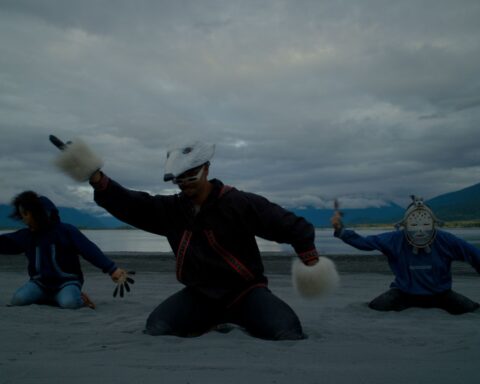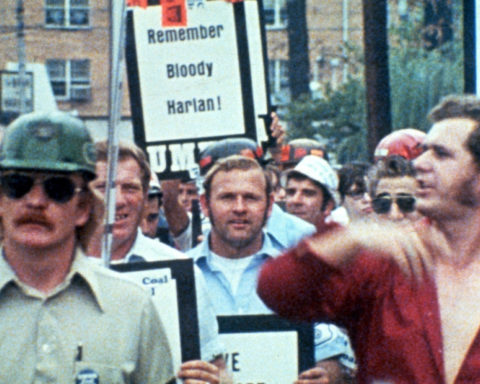Dragonfly Eyes
(China/USA, 81 min.)
Dir. Xu Bing
Programme: Wavelengths (North American Premiere)
Xu Bing is a Chinese artist of Ai Weiwei’s vintage—they were even roommates in New York—whose most famous work seems to be Book from the Sky (1987–91), a massive manuscript of beautiful calligraphy that looks like Chinese but is actually gibberish. They say it’s a commentary on Chinese identity’s foundation in the classics and the language. In interviews, Xu seems almost Maoist, calling Mao a great avant-garde artist who spoke the language of the people and moved China out of useless antiquity. The book looks neat, even if its apparent “point” is somewhat less grand than its aesthetic power as an object would suggest.
A similar set of ideas seems to inform Dragonfly Eyes, Xu’s film debut, with maybe a bit of the same incommensurability of initial impact and actual point. It’s a movie made completely out of security-camera footage but, just as the language in Book from the Sky isn’t Chinese, Dragonfly Eyes is not a documentary. It’s actually a weird story about love and appearance and transformation told through scripted voiceover that pretends that the people seen in the security-camera footage—no matter if they are completely different people and don’t even look similar—are in fact a cast of three or four characters playing out a bizarre Fassbinder-style gender-bending melodrama.
Dragonfly Eyes moves from a Buddhist monastery to urban bars and hotels to highways and hospitals and finally to the non-place of the Internet. We witness all manner of incident surrounding China’s disorienting race into modernity, mostly in images of destruction and technological fragmentation, which often only tangentially relates to the story. For what it’s worth, the fragmented narrative seems to be a flight of fancy based on the idea that each of us is captured by security cameras hundreds or thousands of times a day. So, rather than strictly reconstructing individual lives through these means, Dragonfly Eyes constructs fictional ones through semi-random associative images strung together with that voiceover.
There’s obviously something attractively resonant about that, this being a “world is crazy, can’t tell fiction from reality, everything is terrible, Internet, Trump, yada yada” moment. And, by all accounts, all these things are exponentially bigger deals in China. So there’s that. I’m not totally convinced the film amounts to anything more than a sort of weird hyperbolic melodramatic vertiginous nightmare on these themes—one from which it is pretty pleasant to awaken and reaffirm one’s place in actual physical organic reality, such as it is—but that is, on further reflection, a fine and good and admirable thing for a film to be.











